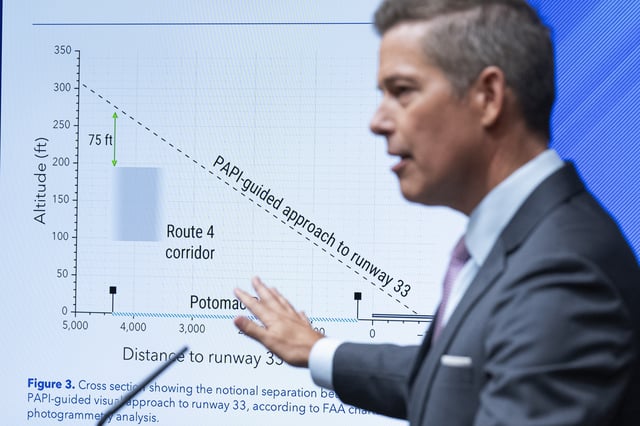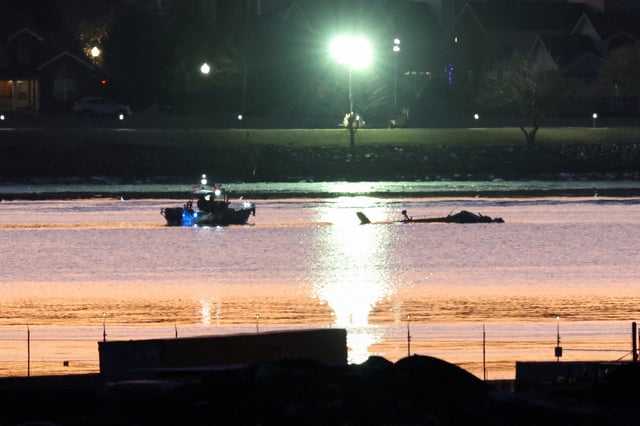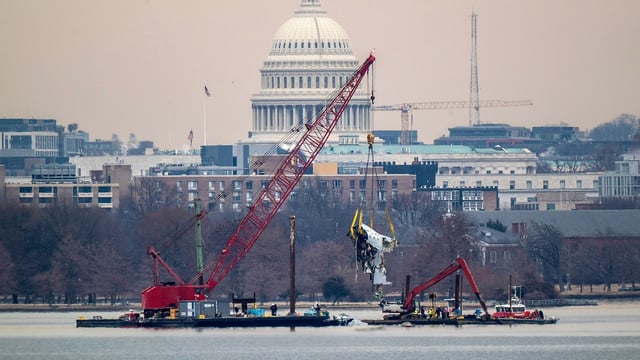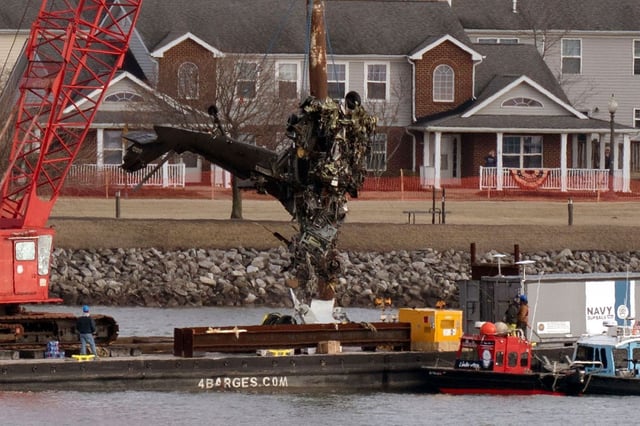Overview
- The Senate Commerce Committee held a hearing on March 27 to address the January 29 collision between an American Airlines jet and a U.S. Army Black Hawk helicopter over the Potomac River.
- NTSB Chair Jennifer Homendy criticized the FAA for failing to act on years of safety data showing 85 near misses in the same airspace from 2021 to 2024.
- The FAA has permanently restricted certain helicopter routes near Reagan National Airport and is using AI to analyze safety risks at other airports with heavy helicopter traffic.
- The Black Hawk helicopter was flying above its 200-foot altitude limit and had its ADS-B location broadcasting system turned off, raising concerns about military aviation practices.
- Victim families, including the Crafton family, have filed claims against the FAA and U.S. Army, alleging the crash was preventable and seeking accountability for systemic failures.



